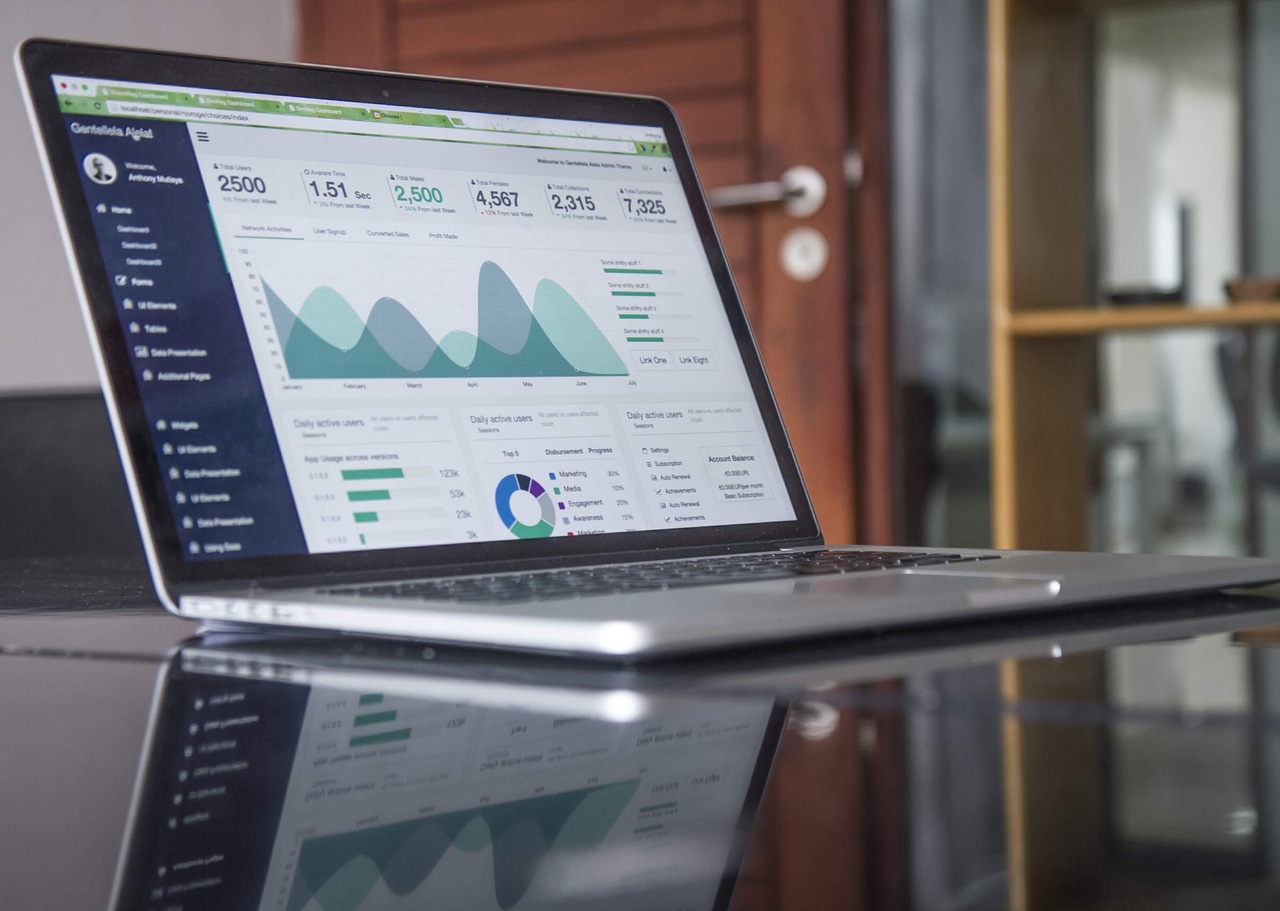Many small scale industries used to ask whether big data can offer the same advantages as it offers big corporates. Big data analytics for small business is a big plus. While most of the small scale business has less self-generated data than big companies, that doesn’t mean big data can’t offer much. In fact, in various ways, big data is more suited to small businesses because they are more agile and can act more quickly & efficiently on data-driven insights.
No one can ignore the importance of small business to any country’s economy. In the US, almost 28 million businesses are into small scale industry and more than 50% of the working population (120 million individuals) works in small scale companies. Before the evolution of digital media, & when traditional marketing methods were at their peak, it was difficult to track sales & conversions. Even it was difficult to measure how many people saw your ad or open your email. The internet has changed it all. Now a business can see page views & opened emails. Businesses collect thousands of data on an everyday basis. Big data helps in analysing these data to make smarter business decisions. It is all about making sense of the unused data and uses them in the right place.
A lot of small business owners take difficult business decisions based on market trends, past year performance and even at times based on intuition. But what if you could tell exactly which day of the week has highest email open rates or maximum page views or website traffic. Which ad of yours has the highest reach or which is the medium bringing more traffic to your business page.
All this is valuable business information. Many times, they are driven by intuition or past trends but it doesn’t have to be that way. Several businesses – large or small – are using big data to improve their product quality, make their marketing efforts more relevant and build stronger relationships with their customers.
If you are running a small business, the fear of big giants is always there. Latest technological trends can be a real threat to the sustainability of your business. But what if you could turn the tables on them and use technology to change the business landscape. Many small businesses believe that big-data analytics projects are too costly and complex for their business model. Most of the analytics solutions in the market were developed especially for larger enterprises. Solution providers won’t understand the requirement of small scale industries as they are targeting big corporates. But, fortunately, with big data now spreading its wing to transform businesses, new and customized solutions are coming to the market on a regular basis especially for smaller businesses.
Now, how small businesses can use big data in a bigger way?

#Understand your target audience
Small businesses can understand their customers – what makes them happy, buying habits, purchase trends, why they switch, what are the factors lead them to refer a company to others, Thanks to big data. Small enterprises are interacting and engaging more with customers by analysing trends and feedback in order to improve their service. Data which includes sales data, customer service logs, product reviews, customer feedbacks, social media performance are the key in measuring the market performance and future opportunities.
Social media has evolved as a valuable source to collect raw data, which helps to identify your niche and actual buyers.
#Trend Identification
Identifying and understanding consumer behaviours and trends allows businesses to predict where their business is moving, which product in your product line has the highest demand, and which product is not performing. Big data is slowly taking the place of gut instinct and giving you the exact numbers and reports.
In social media, you can see trending topics every day, which makes it easier for businesses to work out what customers want. Various industries are analysing business trends related to their industry by using data and take strategic business decisions more effectively than ever before. Retail, healthcare, hospitality, travel, online shopping are few of the industries who do their business heavily depending on the market trend. Small businesses can compare their business data with external data, such as economic condition, weather condition, national budgets, FDIs etc. to build up a detailed picture of what people are likely to buy and when.
#Business Information Analysis
Every small business face one common challenge which is to understand what sort of information is most relevant to their type of business. Sometimes less is more. The best way to start is to prepare a set of a questionnaire of critical information most relevant to your business. Ideally, you should identify that information which can increase the bottom line of your business and service offerings. Which means data which can help you increase revenue and cut down operational cost.

Let’s take the example of a shopping site. Information related to purchase pattern is more relevant than anything. Percentage of men purchasers, women purchasers, time of purchase, most visited products, mode of payment etc. are relevant. After collecting data related to this, you can customise your offerings or coupon codes to increase sales.
Similarly, if you are into travel & tourism industry you need to understand best time of the year to travel, most favourite places, best staying places, most visited locations, age group, gender etc. to offer best possible service.
Small businesses have the same amount of access to big data as large enterprises. There is no reason why big data cannot be leveraged for small business.
– John Smith, CEO of Remote DBA
#Technological Requirement
Use of technology at the right place could be the best possible business strategy. You can get rid of many tough business challenges with the effective use of technology. While analysing technology needs, it’s important to analyse its flexibility and simplicity. Sometimes, technology can provide you with a lot of information but it’s difficult to use and businesses end up not using any of the information.
Big data analytics is the best available technology which can help your business achieve a technological edge over your competitors and obtain the highest level of customer satisfaction. Tools are there from managing business operations to analysing market trends and buying habits. Identify which tools are going to help your business model and take the advantage of technology.
#Competitor Analysis
Previously, understanding your competition was limited to looking at their website and sometimes pretending to be a customer in order to find out more about their approach and service. But, now you don’t even need to go out to check what your competitors are doing. Financial data is there, google trends are there to offer insights, and social media analytics can give you the exact numbers. Twitter, Facebook will give you an idea of what customers are thinking of them. After collecting all these information you can analyse and compare it with your own business model and offerings. If your competitors are having more mentions on Twitter or have more followers on Facebook, then you need to work hard on your service offerings and business model.
Even vice versa can happen. Your competitors can easily go through your business data and formulate their business plan. There is no other way around this, but what you can do is to stay one step ahead by keeping all the data and use it effectively at the right time by the use of big data tools and technologies.
#Tracking Results
Every business can be benefited from analytics. This is where big data comes into play. It allows small businesses to track the outcomes of their online campaigns, promotional strategies, market research and customer relationship management. This helps them to improve their decisions for better results in future. Small businesses can use data to understand how their brand is being perceived by customers. Based on that, businesses can make future predictions about their products to minimize business risks. 72% of the SMEs believes that they primarily use big data to improve business operations and track results.
#Decision Making
Big corporates may have more money and manpower, but they lack the speed and agility to respond quickly and take decisions instantly. Real-time changes and decision making is something SMEs can excel at. A big business needs time to implement any business strategies as it needs many approvals as well as reviews, while small businesses can afford taking risks and quick business decisions. They can collaborate data with intuition. Big data lends insight into what is trending now while making future predictions.

If you want to sustain in the market, you need to master the ability to implement quick changes. When something is trending, it’s your time to grab the opportunity and capitalize on that. Big data helps modestly-sized companies ride the wave more.
Flexibility in taking business decisions is also important when responding to business challenges. Rather than letting customers slip away, taking cues from negative data and responses is key to cutting back on churn. Even sometimes small complaints paint a big picture.
#Optimizing Business Operations
Most of the companies use big data to optimize their business operations. Any business which generates data, big data can be used to make improvements to enhance efficiency. The overall business operation can be optimized and which results in a faster process and cost reduction.
Retail companies can optimize their warehouse operations by the use of big data technology. They can keep their stock as per the data reports after analysing which products have more demand. Stocks can be maintained based on predictions generated from social media data, web search history as well as ATL/BTL campaigns.
Logistics industries optimize their supply chain process and delivery route optimization with the help of big data analytics. GPS and sensors are used to track goods and vehicles to optimize routes by integrating live traffic information and shortest distance as well as maximum space utilization.
#Talent Management
Data can help small businesses to hire the best talents available in the market. Data analytics helps to identify the best recruitment channels, and also helps to engage the current workforce in a better way. Most small businesses already generated a gamut of HR related data: candidate database, profiles, portfolios, reviews etc. Companies can now access so much data that wasn’t available before: from recruitment sites, information from sensors, social media data, internal reports etc. All this information needs to be analysed to gain insights that were never available before for use.
#Revenue Generation
Big data allows small businesses to a healthy number of business opportunities. And the most important thing is that without any upfront cost. Data sources available to small businesses are free of cost. Social media interactions can be the best example. You can easily analyse the page views, conversions, traffic etc. at zero cost. Google analytics can be used as an effective tool to identify consumer behaviour on your business page. Based on the resources, you can provide customized solutions to attract a number of customers. You can also target a specific group of buyers, which can open up ways for revenue opportunities.
Our Take
Big data has got all the potential to change how a business operates. So, adopting a big data strategy will certainly going to change the way small business works. The first step is very vital. Don’t expect too big. Use data analytics for the right process. Make your goal very clear. Data can be collected from a vast array of sources, but if a small business identifies the right source, big data can do magic.
It is better to start from understanding the importance of data that a small business generates. No requirement to install any sensors to capture data to analyse. Analyse the data you have from social media, website to start with. Mining that information for helpful insights is a good first step before entering a big data strategy. Small business owns should specify their goal and result they want to achieve. Without clear direction, companies will spend a lot of time in collecting, and analysing data with no real use. With a clearer picture and goal, small businesses can proceed with confidence and can play with data.
Visionary business leaders who think about future, uses big data for a competitive advantage. They use big data concept both in content & format. If you want to grow, you have to be adaptable as well as do experiments. Only Innovation can make you a market leader. There are few key takeaways from this blog;
- There are more spending in big data than any other technology.
- Before implementing big data analytics you should be aware of industry specific challenges, data characteristics of your industry, need to spend at the right place, need to match market expectations with your own capabilities.
- Industry expertise is most important for using big data effectively.
All you need is a strong mind set to start something. It’s never too late to initiate something new. Apogaeis is a technology service provider & has the expertise to help small businesses in identifying & fulfilling all technical needs. Our data analytics consultants are well versed in their domain and we are the first choice technology partner in big data analytics for small business. Want to know more, we are just a click away. Connect Here A first round consultation is FREE.










alcachofa pills side effects comprare sibutramina broward health imperial point